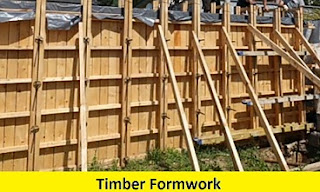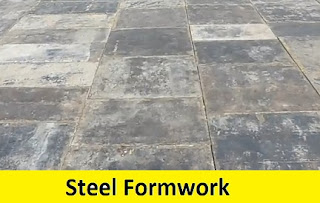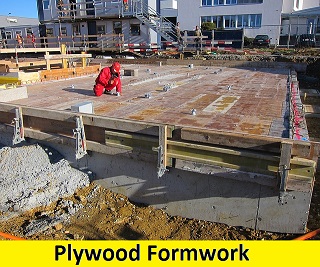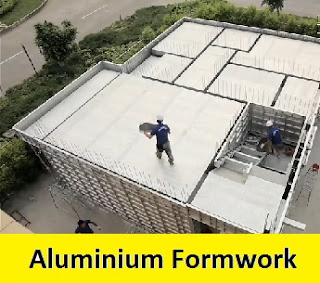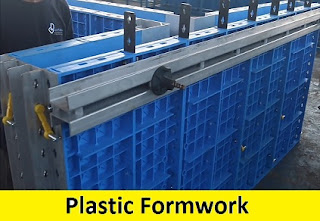Formwork
Formwork is a mould or supporting structure into which concrete is poured until it attains sufficient strength to carry its own weight. It should be strong and capable of carrying all imposed dead and live loads apart from its own weight. steel and timber are the materials most commonly used for formwork and some other material like plastics, aluminium etc are also used.
Properties of Formwork
- It should be strong and enough to resist the pressure or the weight of concrete.
- It should be stiff enough to retain the shape without undue deformation
- It should be economical in terms of the total cost of the form
- It should be sufficiently watertight to avoid leakage at the joint.
Types of Formwork
- Timber Formwork
- Steel Formwork
- Plywood Formwork
- Aluminium Formwork
- Plastics Formwork
Timber Formwork
Timber is a popular formwork material. It has been using from the ancient age. It is lightweight, easy to fix or remove. It is economical and easily available in different sizes.
Steel Formwork
- Steel formwork is stronger, durable and has a longer life than timber formwork and their reuses are more in numbers.
- It can be installed and dismantled with greater ease and speed.
- The quality of exposed concrete surface by using steel forms is good and such surface needs no extra treatment.
- Steel formwork does not absorb moisture from concrete.
- Steel formwork does not shrink or wrap Plywood Formwork
Plywood Formwork
- Plywood is the most common material used for facing panel. it is easily cut to shape on site and if handle and store carefully it can be used for many times.
- The standard thickness of plywood on site is 18 mm. this is usually support for most pours.
- However, if formwork is curved then thinner plywood is used to facilitate bending.
- Thicker plywood is used when the weight of concrete bow out the standard plywood.
Aluminium Formwork
- Aluminium formwork system is simple, fast, adaptable and very cost-effective.
- It is unique because it forms all of the concrete in a building including walls, floors, slabs, columns, beams, stairs etc.
- It gives high dimensional accuracy and smooth finishing of concrete which eliminates the need for costly plaster.
- It is lightweight and easy to handle.
Plastic Formwork
- Plastic formwork is made up of plastic of specific grade to avoid a chemical reaction between poured material and plastic form.
- It is cost-effective and easy to handle.
- It can be assembled and dismantled easily by labour in a very short time.
- It is eco-friendly and takes low maintenance.
Thanks for reading this article. Please, don’t forget to share it.
